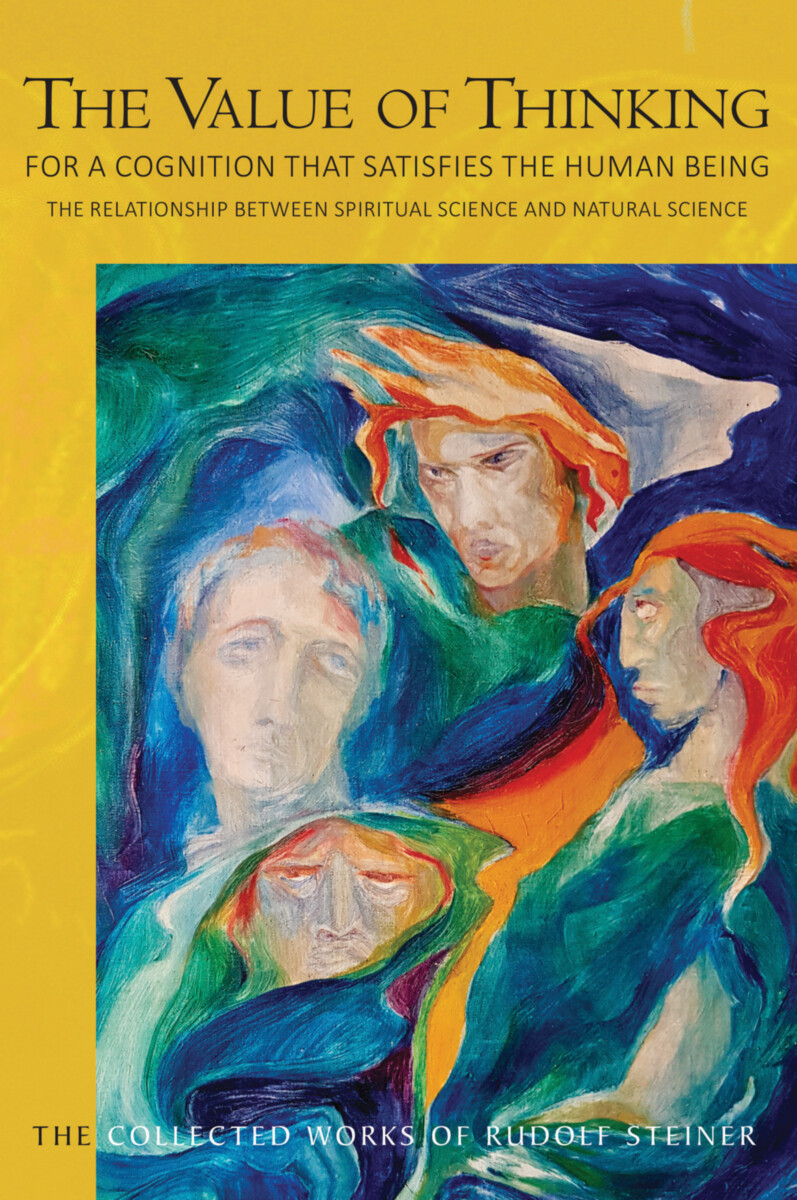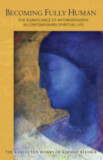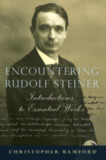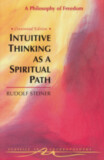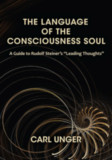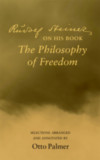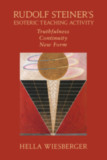The Value of Thinking
For a Cognition that Satisfies the Human Being: The Relationship between Spiritual Science and Natural Science (CW 164)
- Publisher
Rudolf Steiner Press - Published
26th September 2023 - ISBN 9781855846098
- Language English
- Pages 282 pp.
- Size 6" x 9.25"
11 lectures, Dornach, August 20 and September 17 – October 9, 1915 (CW 164)
“As soon as you start thinking about the living sphere, you have to make the thought itself mobile. The thought must begin to gain inner mobility through your own power.” — Rudolf Steiner
Rudolf Steiner divides these absorbing, previously untranslated lectures into three sections. Opening with the value of thinking, he discusses the quality of thinking itself, contrasting “dead physical cognition,” “living imaginative cognition,” and “inspired cognition,” as well as the connection between inspired cognition and previous periods of human and planetary development. He clarifies how visionary clairvoyance can relate to individual intelligence, and discusses the submergence of ideas—the effects of sad or joyful experiences and feelings—in the unconscious, which can promote or inhibit life.
In the second part, Steiner speaks about the relationship between spiritual science and natural science, using a contemporary publication as a case study on how texts can be analyzed fruitfully. He explains how the spiritual-scientific method allows facts or personalities to speak for themselves rather than making personal judgements.
Finally, Steiner deliberates on episodic observations on space, time, and movement—kinetic formulas and concepts such as the speed of light—while also introducing notions such as light ether directly from his own spiritual observations.
These lectures are supplemented with an introduction by the translator, comprehensive notes, line drawings, and an index.
This book was translated from the German volume, Der Wert des Denkens für eine den Menschen befriedigende Erkenntnis. Das Verhältnis der Geisteswissenschaft zu Naturwissenschaft (GA 164).
C O N T E N T S:
Introduction by Christian von Arnim
Part One: The Value of Thinking for a Cognition that Satisfies the Human Being
1. Dornach, Sept. 17, 1915
2. Dornach, Sept. 18, 1915
3. Dornach, Sept. 19, 1915
4. Dornach, Sept. 20, 1915
Part Two: The Relationship between Spiritual Science and Natural Science
1. Dornach, Sept. 26, 1915
2. Dornach, Sept. 27, 1915
3. Dornach, Oct. 2, 1915
4. Dornach, Oct. 3, 1915
5. Dornach, Oct. 4, 1915
6. Dornach, Oct. 9, 1915
Part Three: Episodic Observations about Space, Time, Movement
1. August 20, 1915
NotesRudolf Steiner’s Works
Significant Events in the Life of Rudolf Steiner
Index
Rudolf Steiner
Rudolf Steiner (b. Rudolf Joseph Lorenz Steiner, 1861–1925) was born in the small village of Kraljevec, Austro-Hungarian Empire (now in Croatia), where he grew up. As a young man, he lived in Weimar and Berlin, where he became a well-published scientific, literary, and philosophical scholar, known especially for his work with Goethe’s scientific writings. Steiner termed his spiritual philosophy anthroposophy, meaning “wisdom of the human being.” As an exceptionally developed seer, he based his work on direct knowledge and perception of spiritual dimensions. He initiated a modern, universal “spiritual science” that is accessible to anyone willing to exercise clear and unbiased thinking. From his spiritual investigations, Steiner provided suggestions for the renewal of numerous activities, including education (general and for special needs), agriculture, medicine, economics, architecture, science, philosophy, Christianity, and the arts. There are currently thousands of schools, clinics, farms, and initiatives in other fields that involve practical work based on the principles Steiner developed. His many published works feature his research into the spiritual nature of human beings, the evolution of the world and humanity, and methods for personal development. He wrote some thirty books and delivered more than six thousand lectures throughout much of Europe. In 1924, Steiner founded the General Anthroposophical Society, which today has branches around the world.


